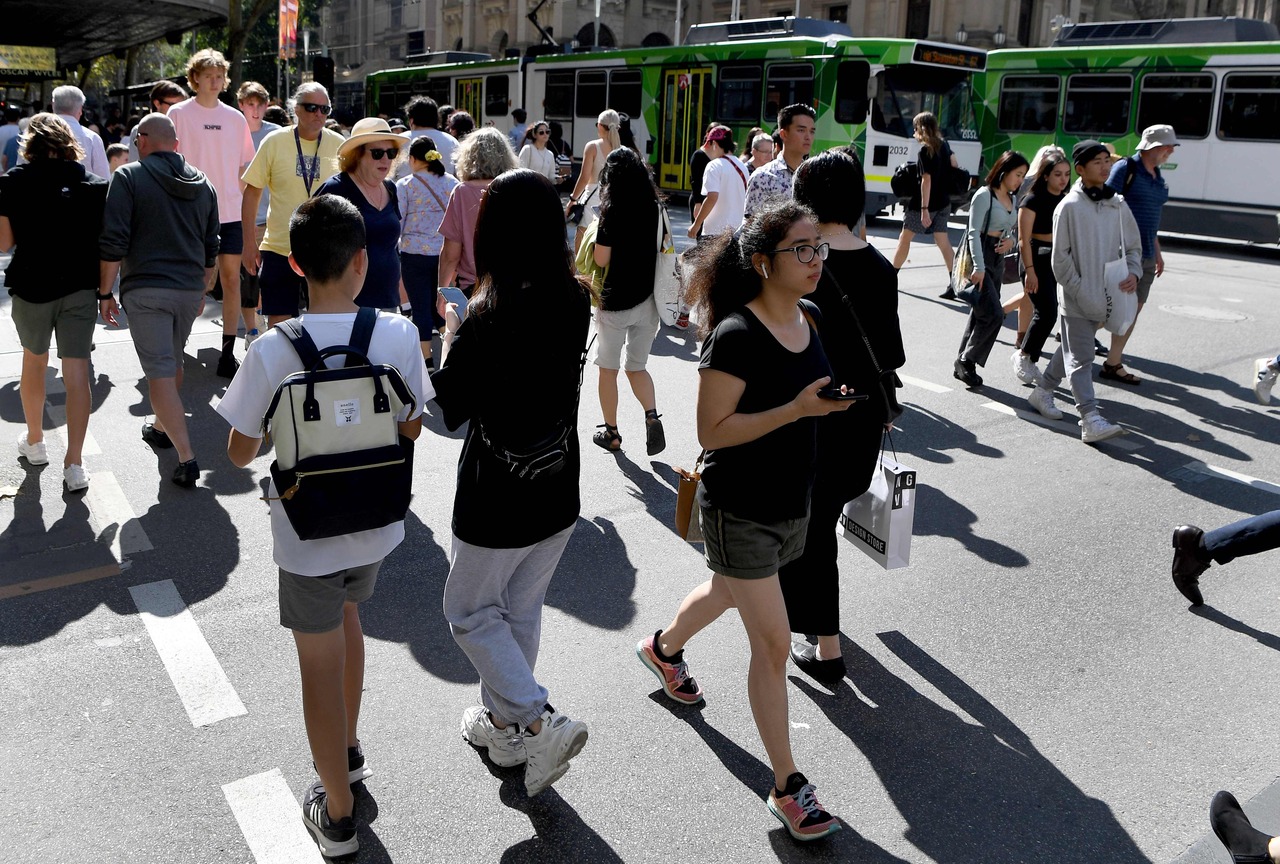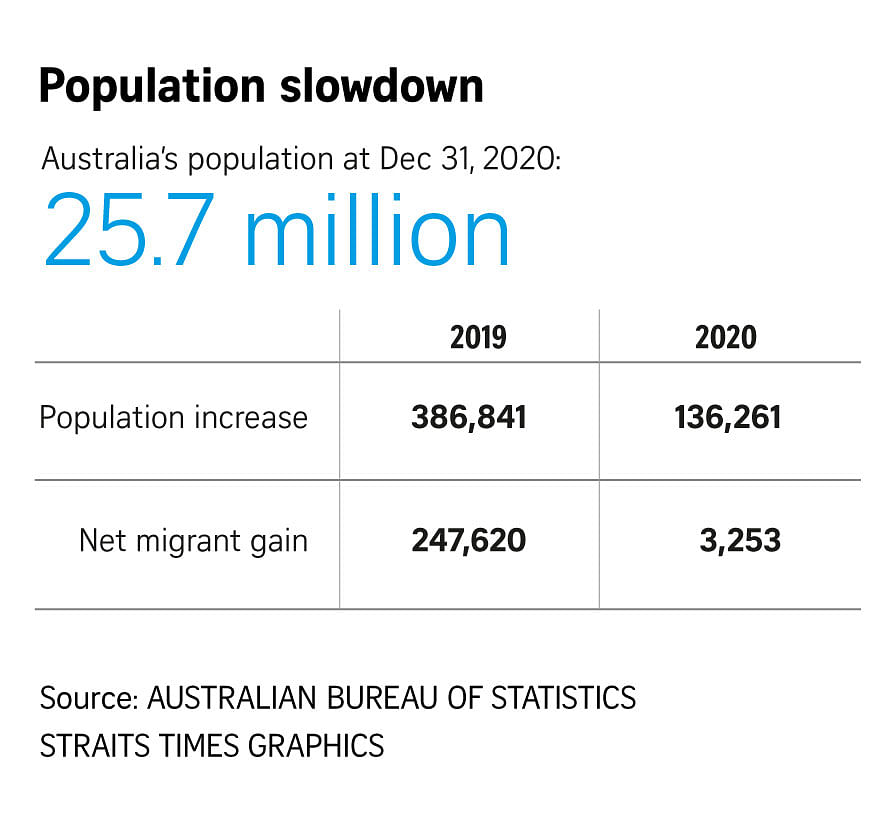Australia records historic population slump amid calls to reboot migration
Sign up now: Get insights on Asia's fast-moving developments

Australia's population had been soaring in recent years, leaping from almost 19 million to 25.5 million.
PHOTO: AFP
SYDNEY - Australia has recorded its lowest population growth in more than a century after a sudden curb on migration during the Covid-19 pandemic prompted a demographic slump.
But the federal government is under growing pressure from businesses to reopen borders and allow the flow of skilled workers to resume, particularly as the booming economy has led to skills shortages.
Australia's population had been soaring in recent years, fuelled by a steady influx of skilled migrants, leaping from almost 19 million to 25.5 million - an increase of more than 34 per cent - between 2000 and the beginning of 2020.
However, population growth in 2020 declined to its slowest rate since World War I, climbing by just 136,261 people, or 0.5 per cent.
The country now has about 25.7 million residents.
In 2019, migrants boosted Australia's population by more than 247,000. But the coronavirus outbreak prompted the authorities in Australia to impose some of the world's toughest international travel restrictions, causing migrant numbers to plunge. In 2020, Australia had a net gain of just 3,253 migrants.
A report earlier this month by the Australian Bureau of Statistics said 98 per cent of last year's population growth was due to births, marking a shift from the long-run trend in which migration has caused most of Australia's population growth.
"Covid-19 had a dramatic impact on Australia's population in 2020," the report said. "International travel and overseas migration slowed to a trickle, interstate migration patterns were disrupted, while births and deaths continued with relatively little change."
Australia is a migrant nation, with about 30 per cent of the population born overseas. The largest sources of residents are England, India, China, New Zealand and the Philippines. More than 60,000 Australian residents were born in Singapore.
But Australia last year closed its borders to those who are not citizens or permanent residents, effectively ending its migration programme and its usual inflow of skilled workers and foreign students. In May, the federal government signalled that temporary and permanent migration may gradually resume from mid-2022.
There are, however, growing calls to allow skilled migrants back in, with thousands of people abroad holding Australian visas they cannot use and businesses in some sectors struggling to find staff.
Restaurant and Catering Australia, a peak group for the hospitality sector, said last month that hospitality businesses had reported up to 100,000 unfilled positions in the industry.
"Many businesses are no longer listing their positions because there simply are not enough qualified applicants," the group's chief executive, Mr Wes Lambert, told SBS News.
"Many are forced to close for days and meal periods during the week at a time when they should be recovering."
To address the shortage of workers, the federal government this week expanded its list of occupations which are treated as priority skilled migrants. The list was expanded from 19 to 41, adding in-demand occupations such as chef, accountant and various types of engineers.
Migrants whose skills are on the priority occupation list can seek approval to enter the country if they are sponsored by an employer. Some other workers whose roles are deemed critical, such as medical specialists or emerging technology workers, can also seek an exemption from the current travel ban.

Minister for Immigration Alex Hawke said the list - created last year - ensured Australia could fill jobs that help to boost employment.
"The Morrison government will continue to support Australian businesses, including through skilled migration, as the engine room of our nation's economy," he said in a statement.
AMMA, which represents Australia's resources and energy industries, said the new skilled migration list would help to address a lack of skilled workers that was threatening to "cripple" the sector. But the organisation's chief executive, Mr Steve Knott, urged the government to plan for the reopening of borders to provide businesses with certainty and confidence.
"Prolonged closed borders to the small pool of international skilled migrants that supplement our domestic workforce has wreaked havoc on Australia's resources industry, as it has on most others," he said in a statement.
"The next step is for the government to urgently formulate a road map to both domestic and international reopening."


